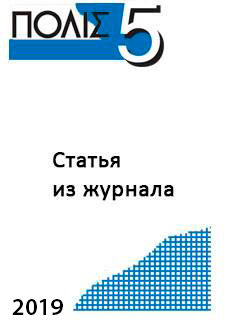Online shop of "Polis. Political Studies" Journal
We in the world, the world in us
Lebedeva M.M., Kuznetsov D.A. Transregional Integration as a New Phenomenon of World Politics: Nature and Prospects. – Polis. Political Studies. 2019. No 5. P. 71-84 (In Russ.)
Free!
transregionalism, integration, globalization, transnationalization, world political system, world politics, BRICS, Belt and Road Initiative, Trans-Pacific Partnership, MIKTA.
The article discusses current trends related to the development of transregionalism in modern world politics. Deepening globalization, spreading integration practices and the trend of democratization – the three key megatrends of world development – provide an environment for increased transregional cooperation. The authors analyze the relationship between megatrends and transregionalism, the latter being considered as a specific type of international interaction which is developed at an intermediate level between the regional and the global levels of world politics. Transregionalism is triggered by the restructuring of political organizations around the world proceeding at three levels: namely political system on nation-states, the system of international relations, and the Westphalian system. New transregional initiatives are also fostered by the greater role of non-state actors, increased border transparency, and transformation of sovereignty due to intensifying transnational flows, the crisis of old international institutions, and the search for new growth stimuli by both national states and regional associations. The article singles out three key types of transregionalism: a) interregionalism, that embraces regional integration groups (EU-ASEAN, EU-MERCOSUR, etc.); b) transregional forums, comprised of individual states from different regions (BRICS, MIKTA, etc.); c) network transregionalism, as more complex ties including integration groups, individual states and groups of states (Belt and Road Initiative, the Trans-Pacific Partnership, etc.). The article highlights the functions of transregionalism and proposes a definition for it. The authors work out three scenarios for the development of transregionalism: 1) the scenario of “transregional chaos,” based on the highly competitive potential of transregional initiatives; 2) a scenario that considers trans-regionalism as a “stage of globalization”, and 3) a “transregional mosaic” that predicts formation of a network of overlapping transregional groups.
 English
English Русский
Русский

Reviews
There are no reviews yet.